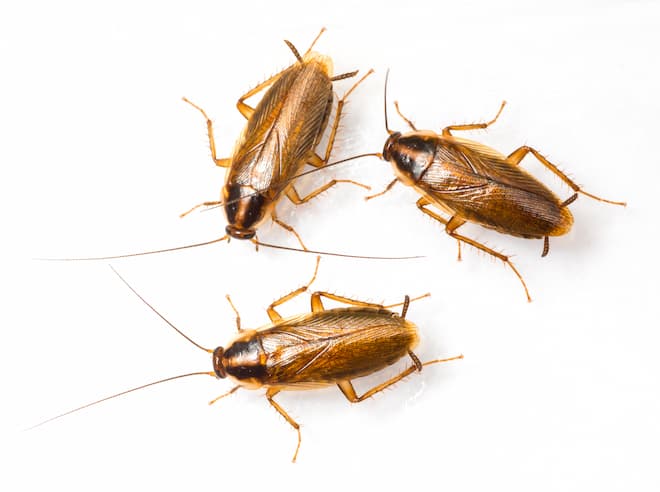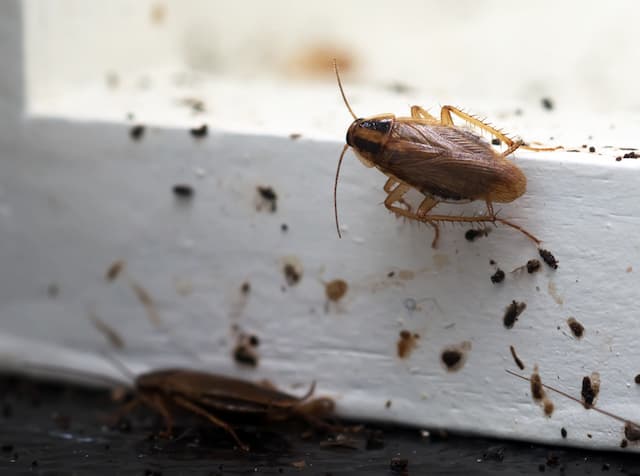Cockroaches do not die after laying eggs. Some species need only mate once and then hold that sperm in their bodies so they can lay eggs for the rest of their lives. Cockroaches have varying lengths of life-based on their species. Anywhere from one hundred to two hundred and fifty days. Larger species like the American Cockroach can live much longer but have much fewer eggs in their egg sack, or ootheca.
Cockroach life cycle and species
The smallest cockroach in North America which is not native to this continent is the German cockroach who lives far shorter lives, as little as one hundred and sixty days, but can have up to sixty eggs in a single egg sack. This is why it is important to identify the species of cockroach you are dealing with. If you are planning on treating it yourself using a domestic process then German cockroaches will be a pain in the neck and may not be treatable through domestic chemicals and bait. They will most likely require professional treatment.

Cockroach dangers
Cockroach babies hatch as tiny cockroaches. Unlike other insects that hatch as larvae and go through instar transformations to reach adulthood, cockroaches start their life as smaller cockroaches who go through a moulting process as they grow larger. This moulting is the slow soothing of hundreds of layers of the carapace as they grow larger. This happens almost constantly and results in tiny pieces of carapace so small they can float in the air like motes of dust. The cockroaches are coated in dangerous bacteria even very early in their lives so this moulting can cause reparatory infections like staph infections in the lungs. This is one of the major reasons to get cockroaches out of your home. They are incredibly dangerous to human health and can make people very sick.
Cockroach domestic treatment
There are many things you can do on your own to deal with an early and small cockroach infestation. Hardware stores, convince stores and grocery stores all carry basic domestic pesticides, traps like glue traps and insecticide dust as well as gel bait. The glue traps are great for seeing the level of activity in your home and knowing if you have gotten rid of them yet. Set them up all over the kitchen and bathroom and check them daily to see if there are cockroaches caught in them. If not you may have solved the infestation. Insecticide dust is a great start to the actual treatment.
Insecticide Dust
The dust is silica dioxide and while it is harmless to humans it can get stuck inside insects’ carapaces and rip limbs off. Some say the dust also scratches the waxy coating that keeps moisture inside the insect causing it to desiccate. There is no evidence to support this, however. You can place this dust on the ground and in the bottoms of cupboards and around the backs of appliances.
Pesticide
The next step is getting a pesticide treatment done. For cockroaches, permethrin is recommended as it is natural and derived from the chrysanthemum plant. Spray this around the baseboards of the ways, in cupboards and where the wall meets the counter.
Gel Bait
Gel bait is a very effective way of getting rid of the infestation once and for all but you must make sure to take away their other food options by sealing all your food in tight containers made of metal or glass and cleaning your kitchen thoroughly. Even a few crumbs can feed them for weeks.


